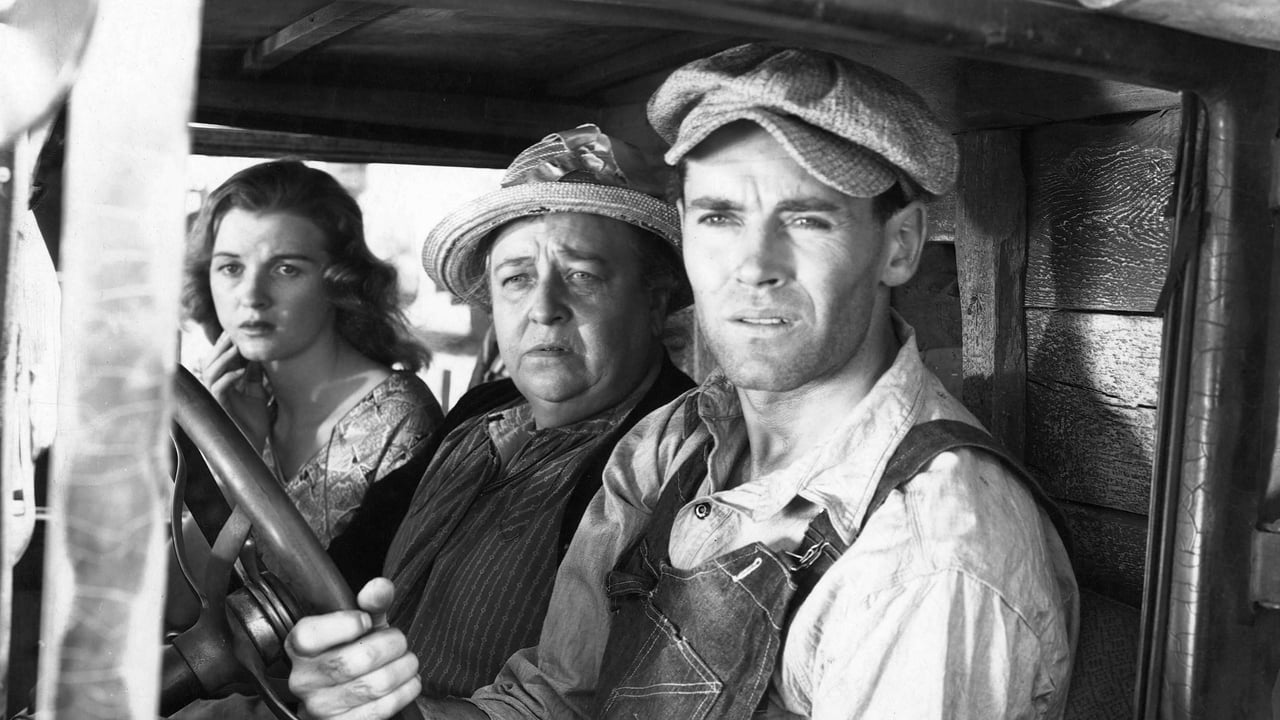

Greetings from Lithuania."The Grapes of Wrath" (1940) is a one powerful and heartbreaking movie. It tells a very simple story but does this in a great way. Its been a long time since i felt true sorry for people shown in this movie or more specific life that they had to endure during the time. The craftsmanship of this movie is great - directing (amazing pacing for whole 2 h 8 min), involving and realistic writing as well as great acting. Best performance in this movie was hand down by Jane Darwell who played Ma. She glues the family together in its hardest time - literally i could seen my mom in her - this is a wonderful performance of a wonderful human. Overall, "The Grapes of Wrath" left me heartbroken many times during its time. The most saddest things for me when watching a movie isn't when somebody cries - but its when a life tries to knock good and hard working people down on its knee. "The Grapes of Wrath" is a great movie.
... View MoreThis is a beautiful looking film with lots of wonderful acting performances! It's one of the rare times that a classic book has been turned into a classic movie, in my opinion! John Ford really captures the essence of the novel, even if some big parts are left out. And when Henry Fonda delivers that "I'll be there" speech near the end, well that's just cinema gold! It's not better than the book, but it sure can stand proud!
... View MoreThe magnificent adaptation of the novel "The Grapes of Wrath", with John Ford on his best shape. The whole movie is a lesson on how to convey the feeling behind a time (the great depression in America) on the masterpiece images that resulted in the film. Cinematography, acting, edition, all are there with a purpose and combined they produce an outcome that only a great director is able to mind. Every detail is made important, like the clothes condition along the movie, the despair that increases in every face, the familiar ties that responds to every fact. Every detail tells the story in a way to make the spectator take place on the happenings. Special attentions to the constant use of shadows, which almost play as another group of characters. Henry Fonda, Jane Darwell and John Carradine are absolutely great but fit in the story in a way to lever the shinning of all the other actors/characters. Finally, it's a crazy idea, but it seems that the people in charge of "The Walking Dead" had in this movie a great playbook to guide them in a way to produce the story of a group of hopeless people trying to survive every new day in a society that has just been reduced to ashes.
... View MoreThe film opens with Tom Joad (Henry Fonda), released from prison and hitchhiking his way back to his parents' family farm in Oklahoma. Tom finds an itinerant ex-preacher named Jim Casy (John Carradine) sitting under a tree by the side of the road. Casy was the preacher who baptized Tom, but now Casy has "lost the spirit" and his faith (presaging his imminent conversion to communism). Casy goes with Tom to the Joad property only to find it deserted. There, they meet Muley Graves (John Qualen) who is hiding out. In a flashback, he describes how farmers all over the area were forced from their farms by the deed holders of the land. A local boy (Irving Bacon), hired for the purpose, is shown knocking down Muley's house with a Caterpillar tractor. The large Joad family of twelve leaves at daybreak, along with Casy who decides to accompany them. They pack everything into a dilapidated 1926 Hudson "Super Six" sedan adapted to serve as a truck in order to make the long journey to the promised land of California.
... View More